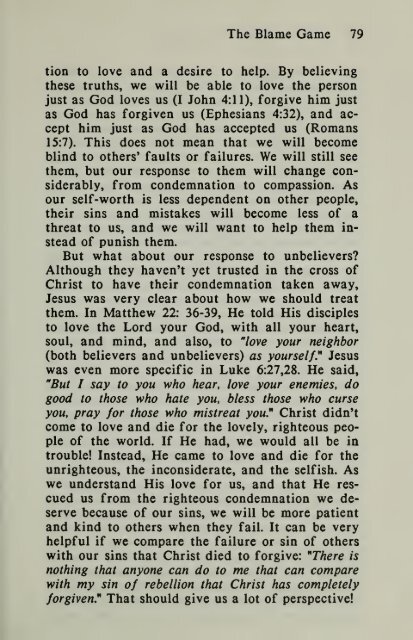The Search for Significance
Robert McGee's best-selling book has helped millions of readers learn how to be free to enjoy Christ's love while no longer basing their self-worth on their accomplishments or the opinions of others. In fact, Billy Graham said that it was a book that "should be read by every Christian." In this timeless classic you will: Gain new skills for getting off the performance treadmill Discover how four false beliefs have negatively impacted your life Learn how to overcome obstacles that prevent you from experiencing the truth that your self-worth is found only in the love, acceptance, and forgiveness of Christ
Robert McGee's best-selling book has helped millions of readers learn how to be free to enjoy Christ's love while no longer basing their self-worth on their accomplishments or the opinions of others. In fact, Billy Graham said that it was a book that "should be read by every Christian."
In this timeless classic you will:
Gain new skills for getting off the performance treadmill
Discover how four false beliefs have negatively impacted your life
Learn how to overcome obstacles that prevent you from experiencing the truth that your self-worth is found only in the love, acceptance, and forgiveness of Christ
Create successful ePaper yourself
Turn your PDF publications into a flip-book with our unique Google optimized e-Paper software.
<strong>The</strong> Blame Game 79<br />
tion to love and a desire to help. By believing<br />
these truths, we will be able to love the person<br />
just as God loves us (I John 4:11), <strong>for</strong>give him just<br />
as God has <strong>for</strong>given us (Ephesians 4:32), and accept<br />
him just as God has accepted us (Romans<br />
15:7). This does not mean that we will become<br />
blind to others' faults or failures. We will still<br />
see<br />
them, but our response to them will change considerably,<br />
from condemnation to compassion. As<br />
our self-worth is less dependent on other people,<br />
their sins and mistakes will become less of a<br />
threat to us, and we will want to help them instead<br />
of punish them.<br />
But what about our response to unbelievers?<br />
Although they haven't yet trusted in the cross of<br />
Christ to have their condemnation taken away,<br />
Jesus was very clear about how we should treat<br />
them. In Matthew 22: 36-39, He told His disciples<br />
to love the Lord your God, with all your heart,<br />
soul, and mind, and also, to "love your neighbor<br />
(both believers and unbelievers) as yourself" Jesus<br />
was even more specific in Luke 6:27,28. He said,<br />
"But I say to you who hear, love your enemies, do<br />
good to those who hate you, bless those who curse<br />
you, pray <strong>for</strong> those who mistreat you. n Christ didn't<br />
come to love and die <strong>for</strong> the lovely, righteous people<br />
of the world. If He had, we would all be in<br />
trouble! Instead, He came to love and die <strong>for</strong> the<br />
unrighteous, the inconsiderate, and the selfish. As<br />
we understand His love <strong>for</strong> us, and that He rescued<br />
us from the righteous condemnation we deserve<br />
because of our sins, we will be more patient<br />
and kind to others when they fail. It can be very<br />
helpful if we compare the failure or sin of others<br />
with our sins that Christ died to <strong>for</strong>give: "<strong>The</strong>re is<br />
nothing that anyone can do to me that can compare<br />
with my sin of rebellion that Christ has completely<br />
<strong>for</strong>given" That should give us a lot of perspective!

















